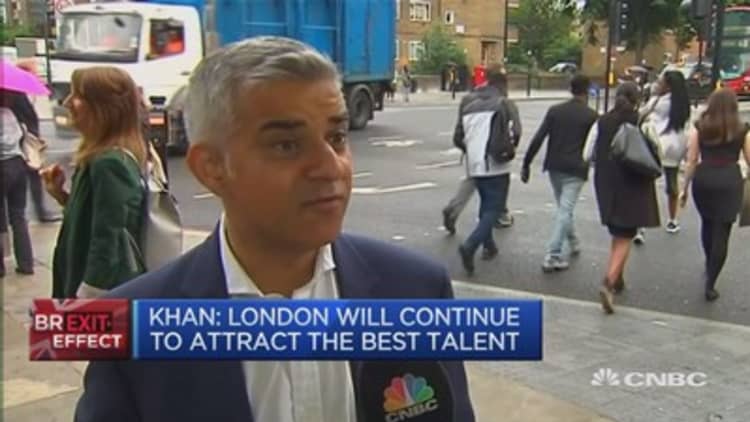
Following years of back-and-forth discussions, London could finally become a 24-hour city with the arrival of its long-awaited round-the-clock London Underground services this weekend. But has it arrived too late?
London's "Night Tube"—which will operate 24 hours on Fridays and Saturdays from August 19—is expected to help provide a £77 million boost to the economy per year in the future, while supporting around 2,000 permanent jobs; according to a new report by London First and EY, and the Mayor of London.
In fact, according to the same report, London's "24-hour economy" could contribute close to £30 billion ($39.2 billion) to the U.K. capital each year by the year 2030, and support as much as 790,000 jobs. At present, the city's night-time economy is valued at up to £26.3 billion per year, and directly supports 723,000 workers.
With London being one of the top city destinations in the world, attracting close to 18.4 million international visitors last year according to Euromonitor International; the introduction of the Night Tube is likely to deliver more opportunities for the city, one of its analysts told CNBC.
"The capital offers a wide variety of attractions which are supported by an extensive transport system, ensuring that tourists can get around easily. While the night tube is a positive development for the city, it is not expected that this alone will draw in more tourists," Euromonitor International Travel Analyst, Wouter Geerts told CNBC via email.
"However, it is likely to offer opportunities for London establishments like bars, concert halls, theaters, sport arenas etc., which currently deal with an outflow of customers trying to catch the last tube."
Who's set to benefit?
Nightclubs, restaurants as well as big entertainment and tourism venues are expected to benefit greatly from the round-the-clock weekend service, allowing companies to keep their doors open for longer, as well as giving both employees and customers a guarantee that they'll get home safely.
In fact according to research by London & Partners, tourists from both the U.K. and overseas believe the all-day transport will motivate them to attend more late-night events, with close to half of those visiting the city saying they would definitely visit a late-night exhibition if London transport could get them home safely afterwards.
One area which many believe could be impacted by the Night Tube is other forms of transport, like taxis and ride-hailing apps such as Uber. Yet despite the introduction of the Night Tube, Uber London's General Manager Tom Elvidge says the company welcomes the new transportation and Uber will be able to complement the service.
"London is a 24 hour city and we need a transport system to match. Uber is a complement to public transport — we help to fill in the gaps between the tube, trains and where people are heading," Elvidge said in a statement emailed to CNBC.
While it's seen as positive for the economy, it did take quite some time for the city to get to this point. The Night Tube was announced back in November 2013 and was actually expected to roll out during 2015, however strikes held by several unions over pay and working conditions pushed this date back until 2016.
On top of that there are concerns over people's safety, therefore when the service launches, London's Mayor Sadiq Khan will be investing £3.4 million extra towards policing for the Night Tube, with police officers out on duty when the service begins.
Joining the ranks of other 24-hour cities
London isn't the only city in the world to embrace the 24-hour way of life. New York and Berlin have embraced 24-hour transport, while Amsterdam, Paris and Zurich all have their own night mayors.
The first Night Tube services are set to run on the Central and Victoria lines on Friday and Saturday nights, with trains arriving approximately every 10 minutes. Night buses are also expected to run to accommodate the new service.

The overnight tube will then be rolled out onto the Piccadilly, Northern and Jubilee lines later this fall. TfL has plans to broaden out this service to other Underground lines in the future, but dates have yet to be confirmed.
"In world's megacities such as London, efficient public transport is a must to maintain the city's competitiveness and economic growth," Kasparas Adomaitis, cities manager from Euromonitor International, said in an email.
"Expanding public transport services will add the necessary transport options and will help city residents manage their transport costs."


